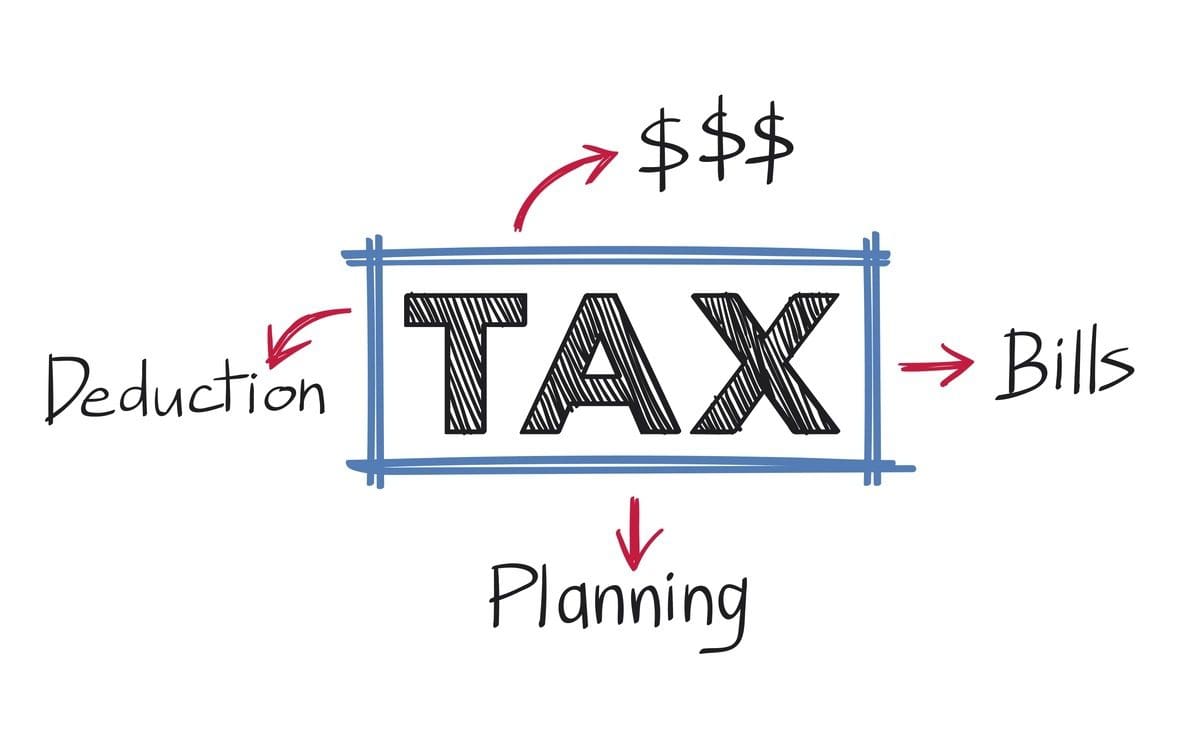As a self-employed business person, you’re your own investment. The more you invest in building your personal business and brand, the more you’ll be able to write off. With all that tax money saved thanks to self-employment deductions, you’ll have more to use on your business.
Table of Contents
How to Reduce Your Business Expenses With Deductions
Deductions can help you save money. This article will introduce you to self-employment tax and how you can use deductions to get the ultimate return on your business investment. FlyFin helps you find new deductions
Understand Self-Employment Tax
Freelancers and independent contractors are subjected to a 15.3% self-employed tax rate and a 10% to 37% income tax rate. Since the average base salary for self-employed individuals is $45,783 per year, you can expect to lose 37.3% of your income to taxes (or $17,077.05).
Employees only pay a part of their Social Security and Medicare taxes because their employer settles up the other portion. When you’re self-employed, you have to pay the entire amount. For this reason, the IRS allows you to deduct your business expenses from your taxes.

Deduction Caps, Tips, and Tricks
Unfortunately, the IRS doesn’t allow you to deduct all your business expenses. However, there are several things you can do to get the most out of your business deductions.
Home Office Expenses
You can deduct your utilities, mortgage interest, rent, homeowners insurance, home depreciation, and office expenses. However, you can only deduct a percentage based on the square footage of your office.
For example, if your office takes up 15% of your home, you can deduct 15% of your utilities, rent, etc. That’s why it’s a good idea to occupy the largest room in your house as an office.
Internet and Phone Bill
If you use your phone or internet primarily for business, you can deduct up to 80%, but you can’t deduct 100%. Anything over 80% will ring alarm bells. If you own an online business, you can get away with using the 80% cap.
Health Insurance Premiums
You can deduct all of your, your spouses, and your children’s health, dental, and long-term care insurance premiums. We recommend putting your family on your health plan to get the most out of this deduction.
Meals and Travel
Business meals are deductible up to 50%, and business-based travel is deductible up to 100%. You can deduct it if you’re meeting with a client or performing regular business duties out of the office (in a restaurant).
Travel is only deductible if it lasts longer than an ordinary workday, requires sleep or rest, and occurs away from your tax home. You must engage in business activity while you’re on the road.
Vehicle Use
You can deduct vehicle expenses if you use your car for business reasons. The standard mileage rate is 58.5 per mile for 2022, but this changes yearly. Keep a record of your mileage. Otherwise, you won’t be able to deduct your vehicle usage.
Education
If you’re taking a course or getting a degree to improve skills that relate to your business, you can deduct 100% of your education costs from your taxes.
Business Insurance
You can deduct the total cost of your insurance premiums from your taxes. It’s crucial that you get business insurance because you can cover your home office in case of a fire, break-in, or fraud. Hence, you’re protecting your investment.
Publications and Subscriptions
If you purchase a magazine, journal, or book related to your business, it’s 100% tax-deductible. For example, if you’re a blog writer, you can write off publications that help you become a better writer or talk about writing.
Interest Deductions
If you need to fund a project, but you’re worried about the interest payments, know that you can deduct all your interest as long as the loan specifically incurs interest on business-related expenses.
Advertising
Anything you purchase to promote your business is tax-deductible. For example, Google ads, TV commercials, PPC ads, and billboards are 100% deductible.
Retirement Plan Contributions
Self-employed individuals can deduct their retirement plan contributions. Plus, the amount you put in will gain interest over time, which helps you save enough money for retirement. It’s a win-win when you invest in a 401(k).
Charity
If you want to reduce your taxes further, you can give to charity. Keep in mind that you can charge a charity donation on your credit card before the end of the year, and it still counts as a charitable donation, even if you don’t pay it off. Freelancers can write off up to 60% of their adjusted gross income, putting you in a lower tax bracket.
If you can classify the majority of your expenses as “business expenses,” you can write off a significant portion of your taxes. You can then use this money to invest in your company.
Featured Photo by John Guccione www.advergroup.com from Pexels




